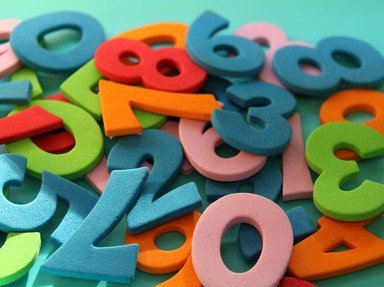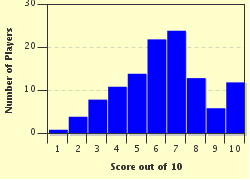Quiz Answer Key and Fun Facts
1. The seventh letter of the English alphabet is G. What is the seventh letter of the Greek alphabet?
2. Around 140 BCE, Antipater of Sidon produced a list of what he called the Seven Wonders of the World. Although the manuscript that survives only names six of them, earlier lists such as that of Herodotus led to the development of the now-accepted seven listed. Of these structures, now known as the Seven Wonders of the Ancient World, which was the seventh and last to be documented as complete?
3. People in a number of cultures consider the seventh day of the week to be set aside as a day of rest, which often includes some form of religious observance. Members of which of these faiths celebrate their day of rest on a Friday?
4. In Dante's 'Inferno', he describes Hell as being organised in a series of concentric levels. The first are for those who are guilty of lesser sins, while the last are for the most serious of sinners. What type of sinner did he describe as being consigned to the seventh level?
5. The Western zodiac consists of ten designated signs, designating regions of space where the sun is in the ecliptic. Tradition starts numbering them with Aries, which starts on the vernal equinox in late March. If Aries is the first sign of the zodiac, what is the seventh one, which starts in late September?
6. The first ten amendments to the Constitution of the United States are known as the Bill of Rights. Each of them guarantees some specific rights for US citizens that were not spelled out in the body of the Constitution. What is the major right that is the focus of the seventh amendment?
7. The seventh son of a seventh son is said, in a number of cultures, to have special powers. Which of these is NOT one of them?
8. If you have watched 'The Sound of Music' enough times, you should be able to sing along and answer this. What word is assigned to the seventh note in a major scale, using the tonic sol-fa naming convention?
9. In what culture is the Qixi (also spelled Qiqiao) Festival celebrated on the seventh day of the seventh month?
10. Times Square, in New York City, is at the intersection of Seventh Avenue and what other well-known thoroughfare?
Source: Author
looney_tunes
This quiz was reviewed by FunTrivia editor
agony before going online.
Any errors found in FunTrivia content are routinely corrected through our feedback system.


